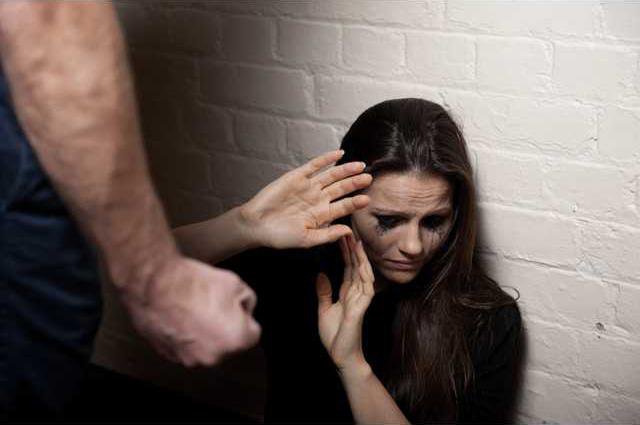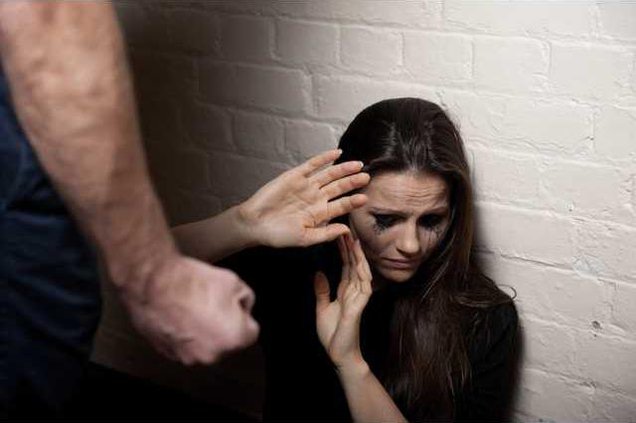Celebrity news went into a frenzy on Monday when reports surfaced that hip-hop stars and former celebrity couple Rihanna and Chris Brown are thinking about getting back together.
The celebs, who broke up in 2013 after a tumultuous relationship that included Brown assaulting Rihanna in 2009 before that years Grammy Awards, were seen speaking through FaceTime, according to The International Business Times.
[Rihanna] is taking it slowly, one source said, according to The IB Times. She still loves Chris and wants to make sure that this time they do it right.
Brown and Rihanna are not unlike a significant amount of other Americans who have experienced an abusive relationship. As a matter of fact, 24 percent of women and 14 percent of men over the age of 18 have experienced severe physical violence by an intimate partner in their lifetime, according to The National Domestic Violence Hotline.
And some of them choose to stay in their harmful relationships, even long after the abuse has occurred. One example of this is the NFLs Ray Rice and Janay Palmer, who got married even after violent video footage leaked of Rice abusing Palmer.
There are a lot of reasons abuse victims will stay with their partner, according to The Domestic Abuse Project. Some victims worry that their partner would take violent action against them if they ended the relationship. Others are concerned that their partner would spread rumors or misinformation about them to others if the relationship ended, according to the DAP.
Mental abuse may also make it difficult to leave, according to the DAP. Some abuse victims feel as though theyre worth nothing and they dont deserve better, which makes them happy to stay in the relationship or return to it. Victims also may be so used to the lifestyle of their abusive relationships that they come back to it when they cant find another partner, according to the DAP.
People wind up blaming themselves for the abusive behavior of their partners, Craig Malkin, a clinical psychologist at Harvard Medical School, told Time magazine last year. They convince themselves if they approach the person differently, maybe they wont be abused.
But sometimes partners stay for reasons other than themselves. Victims may also have concerns that their abusive partner will hurt their children through kidnapping or physical abuse, according to the DAP.
Some victims want their children to have a two-parent real family so badly that theyll stick with the abusive relationship, too, the DAP reported.
And one in three domestic violence victims will stay with their partner because they dont want to leave their pet with their partner, which I wrote about in April of this year.
In fact, almost one out of every four domestic violence victims actually return to their abuser because they were concerned for their pets well-being, according to a report from The Humane Society.
Sadly, domestic violence is something one in every four women will experience at some point in their lives, Congresswoman Katherine Clark (D-Mass.) said in a press release. This isolating experience is made even worse for those who fear for the safety of their pet. Most pet lovers, including me, consider their beloved dog or cat a part of their family.
And, over time, the desire to leave may dwindle even more, especially as the relationship continues to intensify, Malkin told Time magazine.
Eventually theres sort of this wearing down for people on the receiving end of the abuse where they continue to tolerate more and over time feel less entitled to safety, Malkin told Time.
Still, its a complicated process for abuse victims, according to Leslie Morgan Steiner of CNN. Oftentimes, abuse victims will love their partner so much that they cant imagine a life without them, even if the relationship is full of torment and abuse, Steiner said.
Like in the case of Rihanna and Chris Brown, sometimes love is so strong that they will stick together or get back together even after the damage is done.
The answer is as complicated as love itself, Steiner wrote. We victims tend to be hope junkies, open-hearted and optimistic. We believe that our loved ones are capable of change. Some would say we are nave. Others say we are too kind or too forgiving. Often we cannot find the courage to leave an abusive relationship until our life (or our children's safety) has been threatened.
There are warning signs to help women avoid domestic abusive relationships from the start. Some of those warning signs include the abuser criticizing their partners friendships, food choices and weekend plans.
The celebs, who broke up in 2013 after a tumultuous relationship that included Brown assaulting Rihanna in 2009 before that years Grammy Awards, were seen speaking through FaceTime, according to The International Business Times.
[Rihanna] is taking it slowly, one source said, according to The IB Times. She still loves Chris and wants to make sure that this time they do it right.
Brown and Rihanna are not unlike a significant amount of other Americans who have experienced an abusive relationship. As a matter of fact, 24 percent of women and 14 percent of men over the age of 18 have experienced severe physical violence by an intimate partner in their lifetime, according to The National Domestic Violence Hotline.
And some of them choose to stay in their harmful relationships, even long after the abuse has occurred. One example of this is the NFLs Ray Rice and Janay Palmer, who got married even after violent video footage leaked of Rice abusing Palmer.
There are a lot of reasons abuse victims will stay with their partner, according to The Domestic Abuse Project. Some victims worry that their partner would take violent action against them if they ended the relationship. Others are concerned that their partner would spread rumors or misinformation about them to others if the relationship ended, according to the DAP.
Mental abuse may also make it difficult to leave, according to the DAP. Some abuse victims feel as though theyre worth nothing and they dont deserve better, which makes them happy to stay in the relationship or return to it. Victims also may be so used to the lifestyle of their abusive relationships that they come back to it when they cant find another partner, according to the DAP.
People wind up blaming themselves for the abusive behavior of their partners, Craig Malkin, a clinical psychologist at Harvard Medical School, told Time magazine last year. They convince themselves if they approach the person differently, maybe they wont be abused.
But sometimes partners stay for reasons other than themselves. Victims may also have concerns that their abusive partner will hurt their children through kidnapping or physical abuse, according to the DAP.
Some victims want their children to have a two-parent real family so badly that theyll stick with the abusive relationship, too, the DAP reported.
And one in three domestic violence victims will stay with their partner because they dont want to leave their pet with their partner, which I wrote about in April of this year.
In fact, almost one out of every four domestic violence victims actually return to their abuser because they were concerned for their pets well-being, according to a report from The Humane Society.
Sadly, domestic violence is something one in every four women will experience at some point in their lives, Congresswoman Katherine Clark (D-Mass.) said in a press release. This isolating experience is made even worse for those who fear for the safety of their pet. Most pet lovers, including me, consider their beloved dog or cat a part of their family.
And, over time, the desire to leave may dwindle even more, especially as the relationship continues to intensify, Malkin told Time magazine.
Eventually theres sort of this wearing down for people on the receiving end of the abuse where they continue to tolerate more and over time feel less entitled to safety, Malkin told Time.
Still, its a complicated process for abuse victims, according to Leslie Morgan Steiner of CNN. Oftentimes, abuse victims will love their partner so much that they cant imagine a life without them, even if the relationship is full of torment and abuse, Steiner said.
Like in the case of Rihanna and Chris Brown, sometimes love is so strong that they will stick together or get back together even after the damage is done.
The answer is as complicated as love itself, Steiner wrote. We victims tend to be hope junkies, open-hearted and optimistic. We believe that our loved ones are capable of change. Some would say we are nave. Others say we are too kind or too forgiving. Often we cannot find the courage to leave an abusive relationship until our life (or our children's safety) has been threatened.
There are warning signs to help women avoid domestic abusive relationships from the start. Some of those warning signs include the abuser criticizing their partners friendships, food choices and weekend plans.








